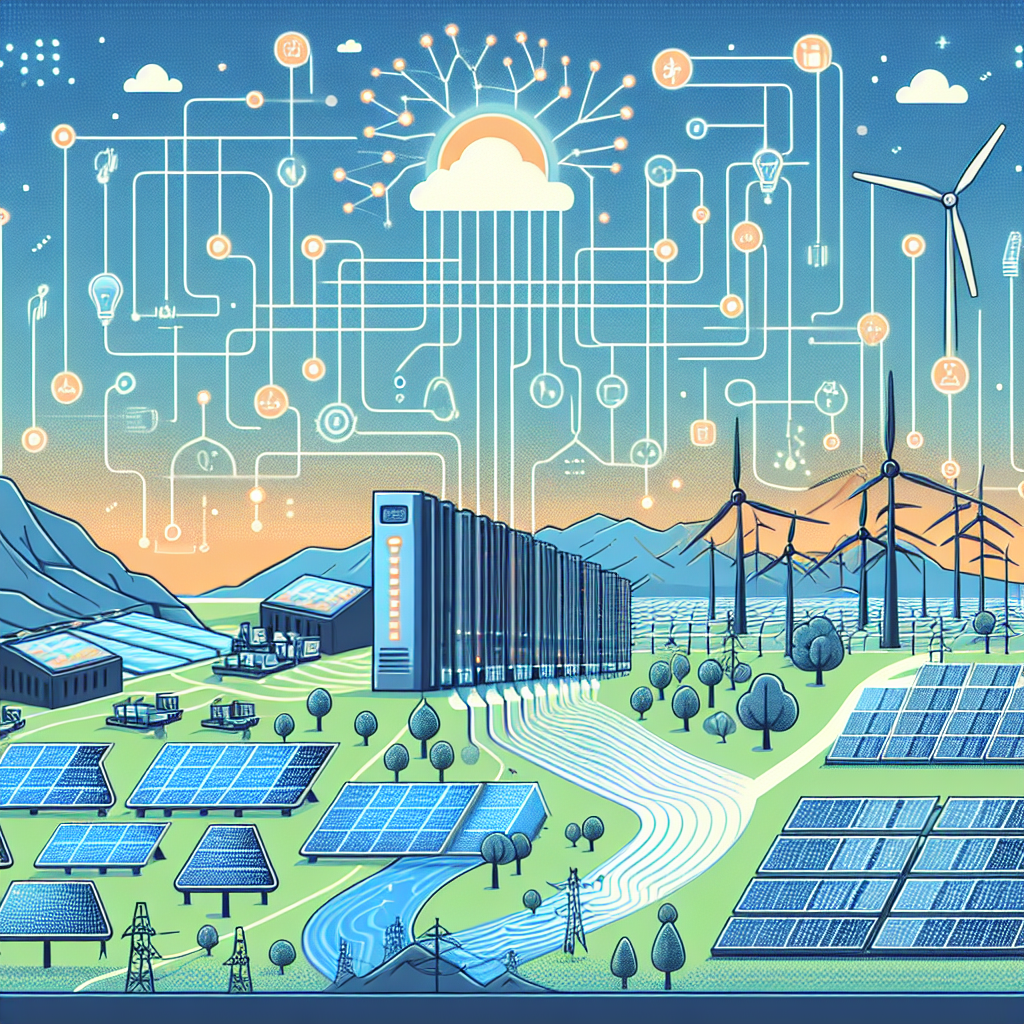In recent years, the demand for sustainable energy production has been growing rapidly due to concerns about climate change and the depletion of traditional energy sources. Artificial intelligence (AI) solutions are playing a crucial role in revolutionizing the way we generate and use energy, making it more efficient, reliable, and environmentally friendly. In this article, we will explore the various AI solutions that are being used in sustainable energy production and their impact on the industry.
AI Solutions for Sustainable Energy Production
1. Smart Grids: One of the key applications of AI in sustainable energy production is in the development of smart grids. Smart grids are advanced electrical grids that use AI to optimize energy distribution, reduce waste, and improve reliability. AI algorithms can analyze data from sensors and meters to predict energy demand, detect faults in the grid, and optimize the flow of electricity. This helps to reduce the overall energy consumption and minimize the impact on the environment.
2. Renewable Energy Forecasting: AI is also being used to improve the forecasting of renewable energy sources such as solar and wind power. By analyzing weather patterns, historical data, and other factors, AI algorithms can predict the amount of energy that will be generated by renewable sources. This allows energy companies to better manage their resources, reduce costs, and increase the overall efficiency of renewable energy production.
3. Energy Storage Optimization: Another area where AI is making a significant impact is in the optimization of energy storage systems. AI algorithms can analyze data from energy storage devices to predict energy demand, optimize charging and discharging cycles, and extend the lifespan of batteries. This helps to increase the efficiency of energy storage systems and reduce the overall cost of renewable energy production.
4. Demand Response Management: AI solutions are also being used to manage demand response programs, which help to balance energy supply and demand during peak times. By analyzing data from smart meters and other sources, AI algorithms can predict peak demand periods and adjust energy production accordingly. This helps to reduce the strain on the grid, lower energy costs, and improve overall reliability.
5. Energy Efficiency: AI is also being used to improve the energy efficiency of buildings, appliances, and other devices. By analyzing data from sensors and meters, AI algorithms can identify areas where energy is being wasted and suggest ways to reduce consumption. This helps to lower energy bills, reduce carbon emissions, and improve overall sustainability.
Impact of AI on Sustainable Energy Production
The use of AI solutions in sustainable energy production has already had a significant impact on the industry. By optimizing energy distribution, improving forecasting, and increasing efficiency, AI has helped to reduce costs, increase reliability, and lower the environmental impact of energy production. In addition, AI solutions have enabled energy companies to better manage their resources, adapt to changing demand patterns, and meet regulatory requirements.
FAQs
Q: What are some of the benefits of using AI in sustainable energy production?
A: Some of the benefits of using AI in sustainable energy production include increased efficiency, reduced costs, improved reliability, and lower environmental impact. AI solutions can help to optimize energy distribution, improve forecasting, and increase the efficiency of energy storage systems.
Q: How can AI help to reduce the environmental impact of energy production?
A: AI can help to reduce the environmental impact of energy production by optimizing energy distribution, improving forecasting, and increasing the efficiency of energy storage systems. By reducing waste and optimizing energy consumption, AI solutions can lower carbon emissions and minimize the impact on the environment.
Q: What are some of the challenges of implementing AI solutions in sustainable energy production?
A: Some of the challenges of implementing AI solutions in sustainable energy production include high upfront costs, data privacy concerns, and the need for skilled professionals to manage and maintain AI systems. In addition, integrating AI into existing energy infrastructure can be complex and time-consuming.
Q: What are some of the future trends in AI solutions for sustainable energy production?
A: Some of the future trends in AI solutions for sustainable energy production include the use of advanced machine learning algorithms, the development of autonomous energy systems, and the integration of AI with other emerging technologies such as blockchain and IoT. These trends are expected to further improve the efficiency, reliability, and sustainability of energy production.
In conclusion, AI solutions are playing a crucial role in revolutionizing the way we generate and use energy, making it more efficient, reliable, and environmentally friendly. By optimizing energy distribution, improving forecasting, and increasing the efficiency of energy storage systems, AI is helping to reduce costs, lower carbon emissions, and improve overall sustainability in the energy industry. As we continue to innovate and develop new AI technologies, the future of sustainable energy production looks brighter than ever.

